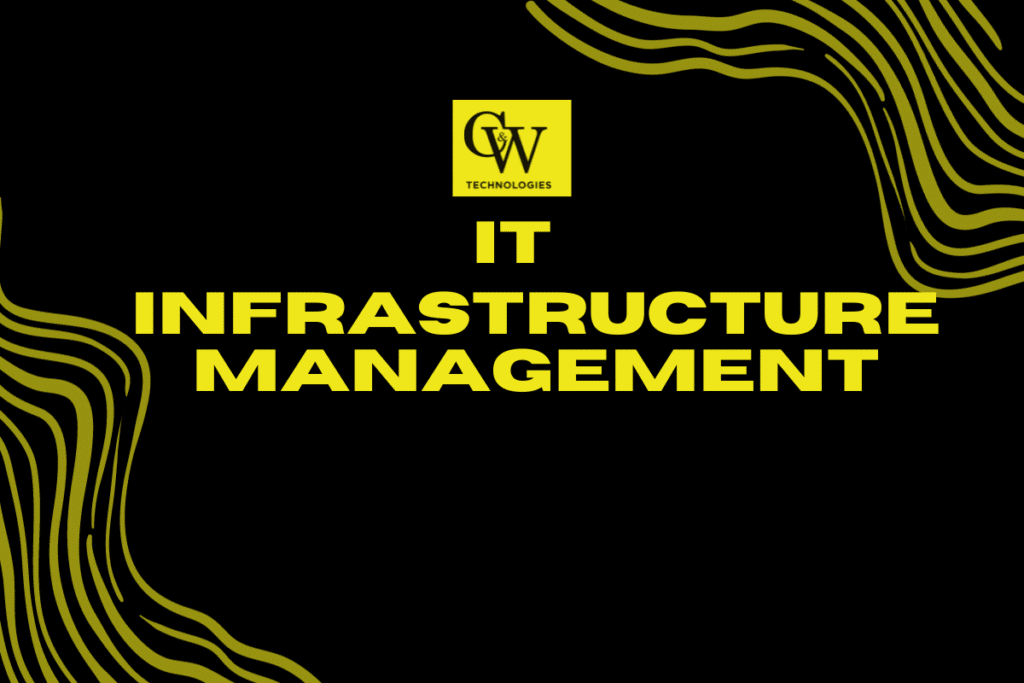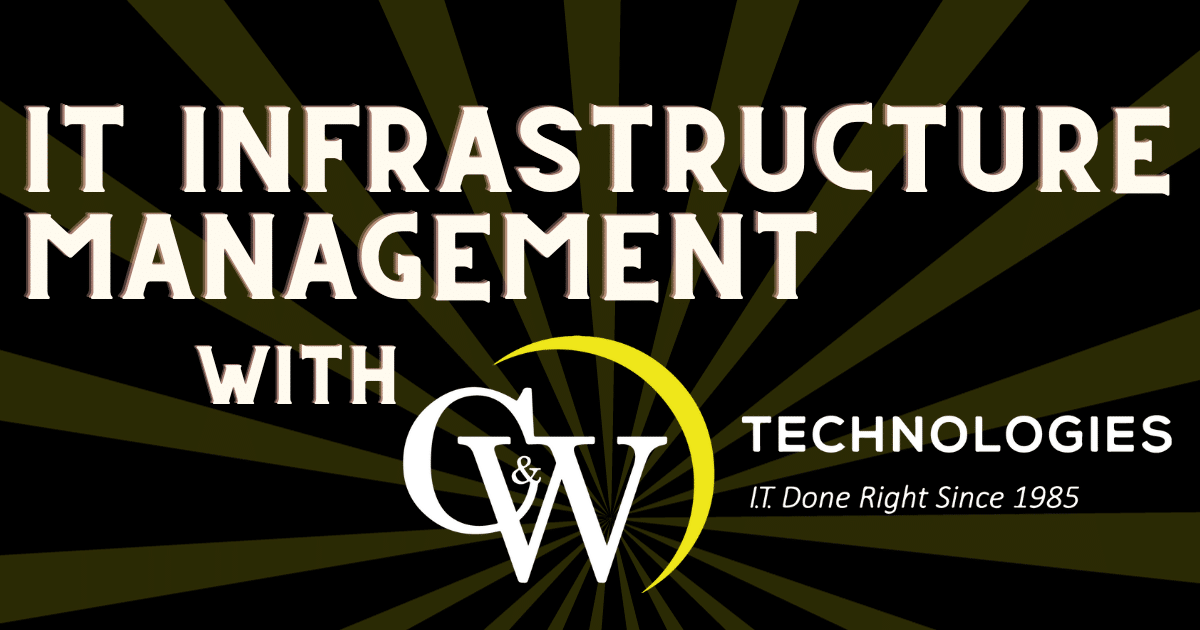Why Everyone Is Talking About IT Infrastructure Management Solutions Right Now
IT infrastructure management solutions have become a hot topic in the tech industry. With the rapid advancements in technology, businesses are constantly looking for ways to improve their IT systems and processes. This has led to an increased demand for effective IT infrastructure management solutions.
But what exactly is IT infrastructure management? And why is everyone talking about it right now?
What is IT Infrastructure Management?
IT infrastructure management refers to the process of managing an organization’s entire IT infrastructure, including hardware, software, networks, and data storage. This includes tasks such as maintenance, monitoring, and updating of systems and processes to ensure they are functioning efficiently and effectively.
Effective IT infrastructure management is crucial for businesses to operate smoothly and stay competitive in today’s digital landscape. It involves implementing best practices and strategies to optimize IT systems, reduce downtime, and improve overall performance.
3 Main Areas: IT Infrastructure Management Solutions
There are three main areas that IT infrastructure management solutions focus on:
Network Management
This involves the monitoring and maintenance of an organization’s network infrastructure, such as routers, switches, and firewalls. It ensures that the network is running smoothly and any issues are quickly identified and resolved.
System Management
This includes managing servers, operating systems, and software applications. It involves tasks such as patching, updates, and backups to keep systems running efficiently.
Storage Management
This involves managing an organization’s data storage infrastructure, including both physical and virtual storage. It focuses on optimizing storage capacity, securing data, and ensuring data is easily accessible when needed.
WHY THE BUZ??
So why is everyone talking about IT infrastructure management solutions right now?
Increased Reliance on Technology
As businesses become more reliant on technology to operate, the need for effective IT infrastructure management becomes even more crucial. This has led to a growing demand for solutions that can help businesses streamline their IT processes and systems.
Cost Savings
By implementing efficient IT infrastructure management solutions, organizations can save on costs associated with system downtime, maintenance, and support. This can lead to significant cost savings in the long run.
Increased Efficiency
IT infrastructure management solutions can help businesses improve their overall efficiency by automating tasks and streamlining processes. This frees up time for employees to focus on more important tasks and projects.
Cybersecurity Concerns
With the rise of cyber threats, businesses are increasingly turning to IT infrastructure management solutions to help secure their networks, systems, and data.
What are IT Infrastructure Management Services?
IT infrastructure management services refer to the outsourced support and maintenance of an organization’s IT systems. This can range from basic monitoring and maintenance to more comprehensive solutions that include network, system, and storage management.
Outsourcing IT infrastructure management can be beneficial for businesses as it allows them to focus on their core operations while leaving the technical aspects to experts. It also provides access to the latest technology and expertise without having to invest in expensive resources.
The Importance of IT Infrastructure Management Services
Effective IT infrastructure management services can bring numerous benefits to businesses, including:
- Improved system performance and reliability
- Enhanced cybersecurity measures
- Reduced downtime and costs associated with system failures
- Access to specialized expertise and resources
- Increased focus on core business objectives
C&W Technologies, with over three decades of experience in IT management solutions, offers a range of services that can cater to your specific business needs. They have the knowledge and ability to apply and utilize IT management solutions effectively, helping businesses take control of their tech landscape.
One of their key offerings is IT as a Service, where services are deployed through solutions including a data center, networking, hardware, software, automation, and management tools. This service aims to provide an integrated approach to managing IT infrastructure.
Additionally, C&W Technologies provides managed services and IT consulting, aiming to make technology ‘boring’ by ensuring it functions seamlessly and without disruption. They focus on managing and implementing technology infrastructure, identifying areas for improvement, and implementing efficient solutions.
C&W Technologies also prides itself in delivering world-class Infrastructure Management Solutions, Maintenance, and Support services to its customers. By integrating people, processes, and technology, they strive to deliver innovative solutions that enhance productivity and manage fluctuations in service demand. Ultimately, their goal is to help businesses achieve greater operational efficiency and stay ahead in today’s ever-evolving digital landscape.
So if you’re looking for reliable and effective IT infrastructure management solutions at a reasonable price, look no further than C&W Technologies!
FAQS
Q: What is systems management in IT infrastructure management?
A: Systems management refers to the tasks involved in managing servers, operating systems, and software applications within an organization’s IT infrastructure.
Q: What is systems management in IT infrastructure management?
A: Systems management involves managing servers, operating systems, and software applications within an organization’s IT infrastructure.
Q: What is configuration management in IT infrastructure management?
A: Configuration management refers to the process of keeping track of changes made to hardware, software, or network configurations within an organization’s IT infrastructure. It helps ensure consistency and stability across systems.
Q: What is security monitoring in IT infrastructure management?
A: Security monitoring is the process of continuously monitoring an organization’s network, systems, and applications for potential security threats or breaches. It involves using various tools and techniques to identify and respond to any suspicious activity.
Q: Why should a business consider outsourcing its IT infrastructure services?
Outsourcing IT infrastructure services enables businesses to prioritize core operations while entrusting technical aspects to experts. It also grants access to specialized resources and expertise without the need for expensive investments.
Q: How can IT infrastructure management solutions improve network performance?
A: IT infrastructure management can help identify and resolve issues in the network, such as bandwidth bottlenecks and latency, leading to improved network performance.
Q: Can outsourcing IT infrastructure management services ensure the security of sensitive data?
A: Yes, by implementing cybersecurity measures and closely monitoring systems, outsourced IT infrastructure management services can help protect sensitive data from potential threats and breaches.
Q: What is capacity planning and capacity management in IT infrastructure management?
A: Capacity planning and capacity management refer to the process of analyzing current and future business needs to determine the optimal resources required for an organization’s IT infrastructure. This helps ensure that systems can handle expected workloads efficiently.
Q: How can web hosting services benefit my business?
A: Web hosting services provide businesses with a platform to host their website, making it accessible to users online. This allows for a wider reach and increased visibility for the organization.
Q: What types of web hosting services are offered by a service provider?
A: Some common types of web hosting services include shared hosting, virtual private servers (VPS), dedicated hosting, and cloud hosting. Each type offers different levels of control, performance, and scalability.
Q: What are proactive measures in IT infrastructure management?
A: Proactive measures refer to the actions taken to prevent potential issues or problems from occurring in an organization’s IT infrastructure. These can include regular maintenance, security updates, and system monitoring.
Q: How does effective database management benefit a business?
A: Effective database management boosts productivity by providing fast access to accurate information, and facilitating informed business decisions. It also streamlines processes and minimizes the risk of data loss or errors.
Q: What is data security in IT infrastructure management?
A: Data security involves safeguarding sensitive data from unauthorized access, use, or destruction. This includes implementing firewalls, encryption, and access controls to ensure data confidentiality, integrity, and availability.
Q: What is the role of an infrastructure manager in ensuring business continuity?
A: An infrastructure manager is vital for maintaining and supporting IT systems, ensuring smooth operations, and minimizing disruptions. They implement disaster recovery plans, conduct risk assessments, and monitor systems for potential issues.
Q: What is involved in managing software components?
A: Managing software components involves tasks such as installation, updates, patching, monitoring, and troubleshooting. This ensures that all components are functioning properly and meeting business needs.
Q: What are service level agreements (SLAs) in IT infrastructure management?
A: Service level agreements are contracts between service providers and customers that specify expected service levels, including response time, uptime guarantees, and support availability. These agreements define expectations and ensure accountability in outsourced IT infrastructure services.
Q: What is the importance of monitoring traffic in IT infrastructure management?
A: Monitoring traffic allows for the identification and resolution of any network issues that may affect performance or security. It also helps track usage patterns and potential bandwidth constraints.
Q: How can data breaches be prevented through IT infrastructure management?
A: Data breaches can be prevented by implementing robust cybersecurity measures, conducting regular security audits, and closely monitoring systems for any potential threats or vulnerabilities.
Q: What is the role of performance monitoring in IT infrastructure management?
A: Performance monitoring involves tracking system metrics and analyzing data to ensure optimal performance. It helps identify any bottlenecks or issues that may impact productivity or user experience. Overall, it allows for proactive maintenance and improvement of
Q: What is cloud computing and how does it work?
A: Cloud computing refers to the delivery of computing services, including storage, processing power, and applications, over the internet. This allows for on-demand access to resources without the need for physical infrastructure.
Q: What tools are used for performance analysis in IT infrastructure management?
A: Some common tools used for performance analysis include network analyzers, log analyzers, load testing software, and user experience monitoring tools. These help collect data and provide visual representations of system performance.
Q: What are some common causes of IT disasters?
A: Some common causes include hardware or software failures, cybersecurity breaches, natural disasters, power outages, and human error. These can result in system downtime and data loss, impacting business operations.
Q: How can performance tuning benefit a business?
A: By improving overall system performance, performance tuning can increase productivity, decrease downtime, and enhance user experience. It can also help save costs by maximizing the use of existing resources.
Q: How can I minimize the impact of unplanned outages on my business?
A: To minimize the impact of unplanned outages, it is important to have a disaster recovery plan in place and regularly test and update it. This should include backups, redundancies, and protocols for quick response and resolution.
Q: How are performance metrics used in analyzing system performance?
A: Performance metrics provide data that can be analyzed to identify any areas of concern or improvement in system performance. This allows for proactive maintenance and optimization.




